Disrupting Israel’s insular political discourse will require fully activating the Palestinian leadership in Israel, grassroots and civil society organizations, and foreign governments and institutions.
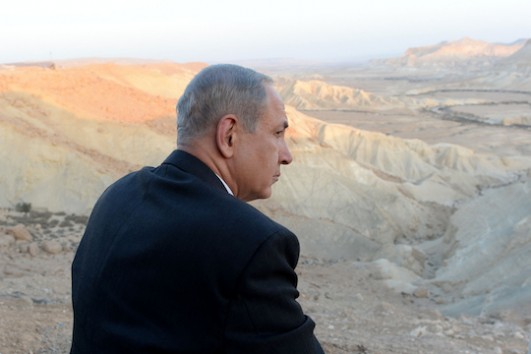
In August 2017, three thousand Israelis greeted Prime Minister Benjamin Netanyahu at a rally in Tel Aviv organized by the Likud party. A few days earlier, media outlets reported that the Israeli police were close to recommending criminal indictments against Netanyahu regarding various corruption scandals after several of his close aides agreed to plea bargains in exchange for their cooperation with the authorities.
Speaking to the crowd, Netanyahu accused the media and the political left of pursuing “an obsessive, unprecedented hunting trip against me and my family with a goal to carry out a government coup.” He claimed that corruption allegations – what he called “fake news” – were also used to target Prime Minister Yitzhak Shamir in 1992 and himself as Prime Minister in 1999, which led to Likud’s election losses and resulted in “the Oslo disaster,” “exploding buses,” and “more than 1,000 dead Israelis.” The Israeli people, he said, should not allow it to happen a third time.
The speech was a classic display of Netanyahu’s knack for rhetorical manipulation. But whatever he had hoped to achieve with his performance, it certainly did not stop the police’s preparations of their charges. In February 2018, Police Commissioner Roni Alsheikh handed his recommendations to Attorney General Avichai Mandelblit, and in the following weeks, more key witnesses gave themselves up to the police.
Although no indictments have been issued yet, and despite surviving the latest coalition crisis, Israelis are speculating whether the corruption scandals finally mark the beginning of Netanyahu’s political demise. The second-longest serving prime minister after David Ben-Gurion, Netanyahu has had a profound impact on Israel’s political scene since the 1990s. It is therefore troubling, especially to Palestinians, that if these corruption cases are the harbinger of Netanyahu’s downfall, it will have had nothing to do with the more egregious crimes for which he is responsible, and for which he – and future Israeli leaders – have yet to be held accountable.
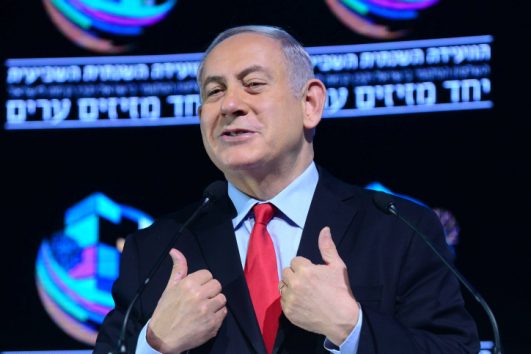
Israel under “King Bibi”
Throughout his premierships, analysts predicted that Netanyahu would be brought down by any one of the allies holding up his fragile rule, from the ultra-orthodox Jewish parties to his personal rivals within Likud. “King Bibi,” however, survived them all. A skilled politician, he has been adept at managing Israel’s notoriously volatile coalition system and has remained in power with three consecutive governments over nine years – each more right wing than the last.
Netanyahu directly influenced the country’s media landscape by shaping the editorial stance of Israel Hayom (the nation’s gratis, most-read newspaper, funded by American billionaire Sheldon Adelson), and used the Communications Ministry to threaten and harass media outlets that were critical of him. Despite crises and condemnations throughout his career – including mass Israeli protests for socioeconomic justice in 2011 and, more recently, weekly protests against widespread government corruption – Netanyahu has withstood public pressures to step down. Ironically, the impending corruption charges show that the most fatal threat to Bibi’s rule is himself.
Netanyahu was never a particularly popular prime minister, but he succeeded in persuading many Israelis to tolerate his leadership, even if begrudgingly. Since the trauma of the Second Intifada, Israeli society shed much of its support for the politics of the traditional left, which in their eyes exposed Israel to waves of Palestinian suicide bombings after the Oslo Accords and rocket fire after Israel’s withdrawal from Gaza. The implosion of neighboring states like Syria, the rise of militant groups like ISIS, and the fear of a potentially nuclear Iran further reduced any belief in idealistic visions of peace. Public opinion shifted instead toward right wing and centrist parties, whose hard-line principles were seen as better guarantors of Israeli security and prosperity.
These conditions allowed leaders like Netanyahu to gradually overhaul the political establishment and infuse their hawkish policies into the national mainstream – and for the average Israeli, their approach seemed to work. The Palestinian bombings of the 1990s and early 2000s vanished, and military operations and “flashes” of violence since have incurred relatively few Israeli casualties. The economy withstood the global recession, international business ties increased, and the high-tech industry boosted the country’s image as a “start-up nation.” Fears that foreign allies would ramp up pressure over settlement expansion in the West Bank failed to materialize beyond repetitive statements about the threat to the peace process – which, for the first time in years, was no longer at the forefront of the Israeli public’s agenda.
The “stability” Netanyahu has offered, however, is an illusion built upon the oppression of Palestinian lives. The ongoing blockade of the Gaza Strip has choked the territory’s 1.8 million residents, creating a humanitarian disaster. Operation Protective Edge in 2014 – the third such operation in five years – destroyed vast tracts of Gaza’s cities and killed 2,251 Palestinians, the majority of them civilians. Military repression and settler violence in the West Bank have imprisoned, injured and killed scores of Palestinians every month. Home demolitions have displaced hundreds of Palestinians every year in Area C, East Jerusalem, and the Naqab (Negev). Israeli officials have threatened and demonized human rights organizations and dissident voices, including Jewish citizens, as threats to the state. New discriminatory and anti-democratic laws passed by the Knesset and condoned by the Supreme Court have deepened the racial inequality of Palestinian citizens of Israel.
The international community has been complicit in preserving Netanyahu’s illusion. The US and EU have deepened their ties with Israel while pretending that the prime minister was committed to the peace process following his 2009 Bar-Ilan speech. This was despite the fact that Netanyahu continued to vocally oppose the two-state solution, sanctioned the construction of thousands of new settlement units, accused EU-funded human rights groups of being “foreign agents,” and declared to the Israeli public that he would never divide Jerusalem or give up “Judea and Samaria.” When diplomatic crises did occur – particularly over settlement expansion – the US and EU failed to impose tangible consequences on the Israeli government’s belligerence, reverting instead to “strongly-worded” language to express their disapproval. Netanyahu thus proved that Israel could actively undermine the US’s and EU’s efforts to make peace, and still enjoy its relations with impunity.
These experiences from the Netanyahu era – together with decades of ethno-nationalism, settler colonialism, and unaccountability – are shaping the future of Israeli politics in relation to the Palestinians. Any Israeli interest in altering the conflict’s so-called status quo has withered, as has the civic space to oppose it. Parties are primarily distinguishing their platforms around domestic issues while mirroring each other’s external policies. The insulation of Jewish life from Palestinian suffering, and the hardening of the Jewish-Israeli political consensus, has made it easier for the Israeli public to either openly embrace or turn a blind eye to the worsening methods used by the state to preserve their colonial bubble. It is therefore telling that Netanyahu’s political survival is more endangered by his acceptance of bribes like champagne and cigars than by his bombardment of Rafah in 2014 or his claim that Arab voters were “coming out in droves” in 2015.
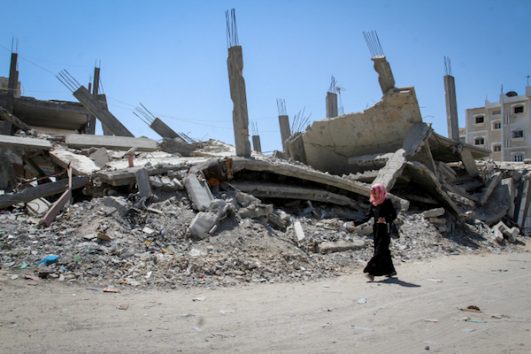
Who’s next?
Despite the looming criminal indictments, which could take months or years to reach a conviction, if at all, it is unclear if Netanyahu will be forced to step down or if his charges will severely affect Likud’s electoral support. Various polls suggest that Likud could lose some seats in the next election (currently set for 2019), but will remain the leading party. This is partly attributed to the failure of the other factions to establish themselves as distinct alternatives to Likud. Since it broke the Labor party’s hegemony in 1977, Likud has not only compelled the Israeli left to court right wing voters, but has almost single-handedly generated today’s Israeli leaders across the political spectrum: Naftali Bennett (Habayet Hayehudi), Avigdor Liberman (Yisrael Beiteinu), Moshe Kahlon (Kulanu), Tzipi Livni (Hatnuah), and Avi Gabbay (Labor), among others, are all former members or supporters of the party.
For now, Likud has pushed party colleagues to stand behind Netanyahu against his charges, and has even encouraged a new law that would shield sitting prime ministers from police investigations into suspected crimes of corruption. This has not stopped political maneuvering within the party to prepare for a “post-Bibi” future. Intelligence Minister Yisrael Katz, Public Security Minister Gilad Erdan, and Culture Minister Miri Regev have been mentioned as possible contenders for the leadership. But the most likely successor according to analysts is Gideon Sa’ar, a former interior and education minister and long-time rival of Netanyahu, who returned to public life last year after a brief hiatus. Public polls show Sa’ar to be the most favored politician to lead the right-wing bloc.
Other right-wing figures are unlikely to win the prime minister’s post, but will still play a critical role in the makeup of any future government. Education Minister Naftali Bennett, along with Justice Minister Ayelet Shaked, are prominent personas but so far have limited electoral support; their nationalist-religious party received only eight seats in the Knesset in 2015, down from twelve in 2013. Finance Minister Moshe Kahlon, who sometimes acted as a centrist counterbalance to the government’s more extreme members, currently holds ten seats but has yet to stand out as a popular leadership contender. Although Avigdor Liberman’s party shrank to five seats in 2015, it was successful in obtaining major government posts as conditions for joining Netanyahu’s coalitions (the foreign and defense ministries in 2009 and 2016, respectively). Former Defense Minister Moshe Ya’alon, who fell out with Netanyahu and Likud in 2016, has stirred speculation of a possible return to politics, though it is uncertain which faction he would join.
The opposition is also reorganizing in an effort to challenge the right-wing bloc’s dominance. In July 2017, the Labor party elected businessman Avi Gabbay, formerly of Kulanu, to replace Isaac Herzog as its new leader; despite an initial spike in popularity, polls later indicated a drop in the party’s support. Yair Lapid of Yesh Atid is predicted to acquire major electoral gains and to pose a serious bid for the prime minister’s post; polls show his party to be neck-and-neck with Likud. Tzipi Livni is unlikely to be a real contender for the premiership (her party received only five seats in 2015) but may preserve her partnership with Labor as part of the “Zionist Union.” Meretz, the most left wing Jewish party, barely scraped five seats in 2015, and in February 2018 its chairwoman Zehava Galon stepped down in the hope of “injecting new blood on the left.” Former Prime Minister Ehud Barak – who served as Netanyahu’s defense minister for three years before retiring – has also given strong indications that he could run for office again, citing polls that suggested he could defeat Netanyahu.
Juxtaposed against the Jewish parties stands the Joint List – the union of the four main Arab political factions in Israel – which faces separate and compound challenges. Despite being the third largest party in the Knesset with 13 seats, the Joint List is aggressively targeted by the right wing and at ideological odds with the Jewish center left. Laws and motions aimed at crippling Arab political rights, as well as hostile statements against Arab representatives, are routinely initiated and backed by Jewish politicians from both camps. The List also suffers from personal and political clashes among its members, and faces growing disillusionment from the Palestinian public over the utility of its parliamentary involvement. If the union perseveres for the next election, it is uncertain if Palestinian voters will repeat the same turnout as 2015 (estimated between 63 and 70 percent) to grant it the same political mandate.
This general mapping of the Israeli political scene could radically change by the time a new election commences. Parties rise and fall on a regular basis; politicians may move from one faction to another; and factors like violence or other crises can alter public opinion (including a possible war over Syria). Ideological enemies frequently forge unexpected alliances, while small or marginal parties (like the ultra-orthodox Shas and United Torah Judaism) can carry disproportionate influence when bargaining for a coalition majority. Polling data has also decreased in reliability: In 2015, despite most surveys indicating that the Zionist Union would win the election, Likud stormed to victory with a lead of six seats. Unpredictability therefore remains the best approach to following these contests.
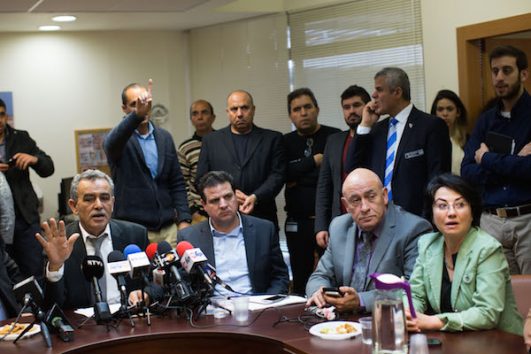
The consequences for Palestinians
What seems certain, however, is that Israel’s post-Bibi politics portends growing misfortune for the Palestinians. All the leadership contenders have histories of espousing racist and violent views of Palestinians as being either nuisances to tolerate or threats to be destroyed. Experience has also shown that while there may be nuances to Israel’s political parties, the effects of their policies toward Palestinians are hardly different, neither in Israel nor in the Occupied Palestinian Territory (OPT).
This is even more evident as the Israeli center left continues its rightward shift. As Labor leader in 2015, Isaac Herzog ran an election campaign catering to anti-Arab sentiment, endorsed the right wing’s motions to disqualify Arab Knesset Member Haneen Zoabi, and routinely referred to Palestinians as demographic threats, saying: “I don’t want 61 Palestinian MKs in Israel’s Knesset. I don’t want a Palestinian prime minister.” In October 2017, his successor Avi Gabbay flatly dismissed the idea of reaching out to the Arab parties to form a coalition, declaring: “We will not share a government with the Joint List, period. You see their behavior. I don’t see any [connection] between us that would allow us to be part of a government with them.” A few weeks later, Gabbay criticized the Israeli left for focusing on being “only liberal” at the expense of Jewish values, and echoed a claim made by Netanyahu that the left had “forgotten what it means to be Jews.”
Others have a record of putting their discriminatory views of Palestinian citizens of Israel into action. As education minister in 2009, Gideon Sa’ar advanced a program to strengthen Jewish and Zionist identity in the Israeli school curriculum, and led a vigorous campaign to ban references to the Palestinian Nakba in Arab schools. These efforts culminated in the 2011 “Nakba Law” – endorsed by then-Communications Minister Moshe Kahlon – which lets the government withdraw state funding from institutions that allow the Palestinian commemoration of Israel’s independence as a “national day of mourning.” Naftali Bennett followed through on Sa’ar’s policies as education minister in 2015 by approving a new civics textbook that promotes Jewish nationalism, minimizes democratic values, and portrays Arabs as security and demographic concerns.
The more extreme ideas for dealing with the Arab “fifth column” have also gained steam. Liberman’s long-standing calls for the population transfer of Palestinian citizens, once dismissed as fringe, have found growing public approval: According to a 2016 Pew study, nearly half (48 percent) of Jewish Israelis support the expulsion of Arabs from the state. More Knesset members are calling for Arabs to be stripped of Israeli citizenship for “breaches of loyalty,” a measure that was approved for the first time by a district court against a security prisoner in August 2017. The previous month, following a shooting attack by three men from Umm al-Fahem at Al-Aqsa compound, Netanyahu reportedly raised the possibility of transferring Arab towns in Israel to the West Bank as part of a future peace deal with the Palestinian Liberation Organization.
Meanwhile, the 50-year occupation of the West Bank and Gaza has become an integral, normalized, and lucrative part of the Israeli state – which no Israeli politician has reason to end for the foreseeable future. The asymmetric “status quo” grants Israel strategic advantages, natural resources, spatial growth, economic ventures, and religious and nationalist fulfilment. Thanks to the Oslo Accords, the Palestinian Authority operates as a sub-contracted security service that crushes both armed and nonviolent Palestinian resistance on Israel’s behalf. Emboldened by the occupation’s durability, advocates for a “Greater Israel” like Bennett are advancing legislation that would legalize hundreds of settlement outposts and formally annex Area C; in December 2017, Likud passed a party resolution urging that these plans be implemented.
Furthermore, despite some parties declaring their support for a two-state solution, there is little difference today between the right wing and center left’s visions of that solution. Sa’ar of Likud has repeatedly called for intensified settlement construction throughout the West Bank and particularly in East Jerusalem, warning that at its current pace, “[W]e will lose the Jewish majority in the city within 15 years.” Lapid of Yesh Atid, a self-proclaimed centrist and two-state proponent, stated: “The Palestinians must be brought to an understanding that Jerusalem will always remain under Israeli sovereignty and that there is no point for them in opening negotiations about Jerusalem.” Gabbay of Labor went further in October 2017, praising the settlement enterprise as “the beautiful and devoted face of Zionism,” and insisting that the occupied Jordan Valley “will remain Israel’s eastern security buffer – and security requires settlement.”
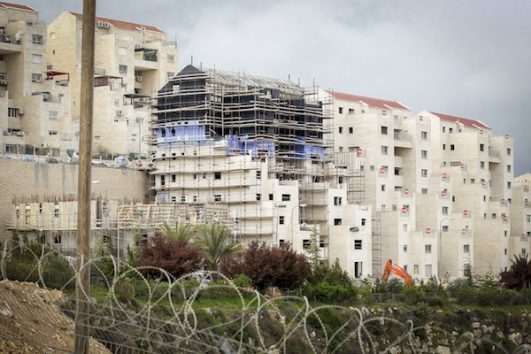
Bursting Israel’s bubble
Left to their own devices, the Israeli parties have little interest in putting the six million Palestinians they rule at the forefront of their concerns. All the political camps are united in the view that Palestinians must remain at the mercy of Israeli diktats, whether through unequal citizenship, a shrivelled quasi-state, or permanent occupation. And while it would be wrong to ignore the kaleidoscopic nature of Israeli politics, it is critical to recognize that this kaleidoscope exists in a bubble that lords over its Palestinian subjects, who then suffer the decisions of the Jewish Israeli consensus.
Actions must therefore be aimed at bursting this Israeli bubble and altering the structures that allow it to systematically deny Palestinian rights. What are some ways to do this?
The Palestinian leadership in Israel: Despite internal disputes, the Joint List (more so than the High Follow-Up Committee) has become an important political channel for voicing the demands of the Palestinian people. It is the only party in Israel that is unequivocally committed to the principle of equality and to an end of the occupation, as articulated by the 2006 Future Vision Documents. Although this platform poses more of a symbolic than practical threat in the Knesset, its impact lies in exposing the racism embedded in the Israeli center left’s political agenda, and in helping to break the myth of Israel as a liberal democratic state. In view of this, the Joint List should set two priorities: First, to engage with its Palestinian constituents to restore public trust in its mission, and further integrate and consolidate its internal institutions across factional lines; and second, to bolster its resources for conducting international advocacy with political actors such as the EU and with public stakeholders such as in the US, where the party has made major strides in mobilizing support for its alternative political vision (including among American Jews who have become increasingly critical of Israel’s policies).
Grassroots and civil society organizations: In the absence of international diplomatic action, the Boycott, Divestment, and Sanctions (BDS) movement is one of the few actors imposing material and psychological costs on Israel’s political decisions – a fact that has spurred the Israeli authorities to label its nonviolent strategies a “strategic threat.” In the face of measures to silence the movement around the world – such as through legislation, administrative measures, and accusations of anti-Semitism – legal and human rights groups must actively intervene to secure people’s right to boycott and protest for Palestinian rights in all forums. The work of intersectional grassroots coalitions in the US are positive models to emulate, using strategic litigation, political lobbying, and public advocacy. By securing these basic civil liberties, the BDS movement can continue to build on its success in compelling decision makers, companies, universities, and other institutions to support Palestinian rights and, in turn, gradually pressure Israeli politicians and their supporters to confront the fact that their isolation will continue so long as their discriminatory and occupation policies remain.
Foreign governments and international institutions: The international community can no longer grant impunity to Israel’s worsening politics. States must set aside the defunct model of the “peace process” and instead adopt a strategy of balancing the conflict’s power dynamics by conditioning their relations with Israel on its abidance to international law and its cession to Palestinian human rights demands. Given the Trump administration’s intent to fully yield to Israeli preferences and bipartisan efforts in Congress to stifle criticism of Israeli policies, the ability and responsibility to lead these efforts lies largely with Europe. Despite disputes and intransigence among its members, the EU and European governments are already equipped with the tools to exercise their political and economic leverage over Israel: these include the EU’s differentiation policy, its negotiations over an updated Association Agreement, and member states’ bilateral terms of relations. The EU should also fulfil its commitments to accountability by utilizing the UN’s upcoming database of businesses involved in Israeli settlement activity, and by ending its aversion to the International Criminal Court’s preliminary examinations into the 2014 Gaza War and Israel’s settlement policy.
The full activation of these three levels, among other possible strategies, can help to shake Israel’s insular political discourse before and after the next election. Until consequences are imposed on the status quo, no Israeli party will dare to unravel the racist and oppressive systems that deny Palestinians their basic human rights. Understanding Israel’s transformations under the Netanyahu era are thus crucial not to highlight the man himself, but to tackle the conditions that allow leaders like him to determine the conflict’s trajectory. For Palestinians, at least, it should not be the case that Israeli officials are more likely to face justice for receiving expensive cigars than they are for committing the crime of apartheid.
This piece is adapted from a policy brief for Al-Shabaka: The Palestinian Policy Network, published on 11 March 2018.

